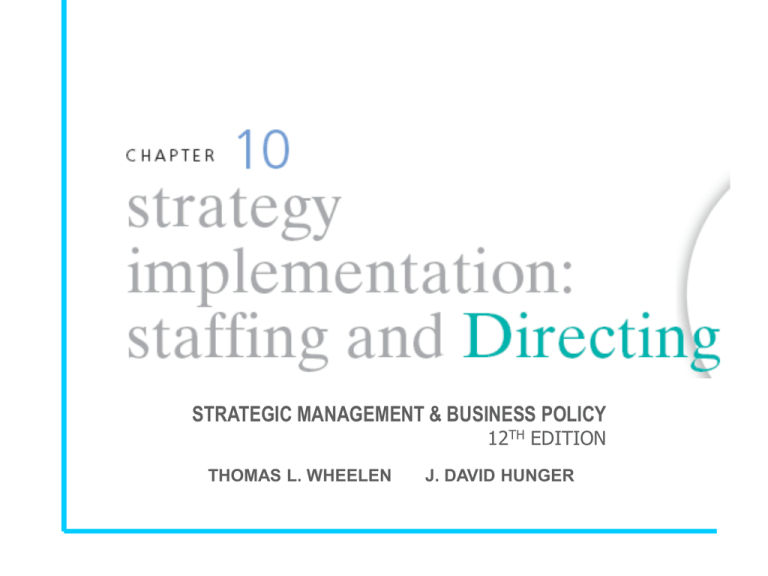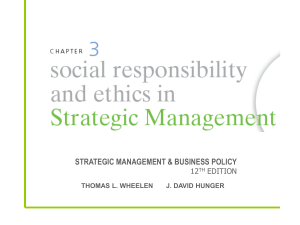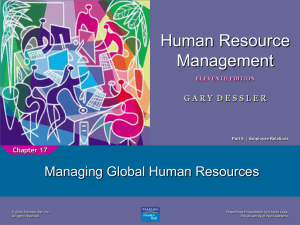STRATEGIC MANAGEMENT & BUSINESS POLICY 12 EDITION
advertisement

STRATEGIC MANAGEMENT & BUSINESS POLICY 12TH EDITION THOMAS L. WHEELEN J. DAVID HUNGER Selection and Management Development Executive succession- replacing a key top manager • • • Succession planning Identifying candidates below the top layer of management Measuring internal candidates against external candidates Providing financial incentives Prentice Hall, Inc. ©2009 10-2 Staffing Follows Strategy • • Training and development Executive types – – – – – Dynamic industry expert Analytical portfolio manager Cautious profit planner Turnaround specialist Professional liquidator Prentice Hall, Inc. ©2009 10-3 Identifying Abilities and Potential Performance appraisal system identifies good performers with promotion potential Assessment centers evaluates a person’s suitability for an advanced position Job rotation- ensures employees are gaining a mix of experience to prepare them for future responsibilities Prentice Hall, Inc. ©2009 10-4 Problems in Retrenchment Downsizing the planned eliminated of positions or • jobs Can damage the learning capacity of an organization Prentice Hall, Inc. ©2009 10-5 Successful Downsizing • • • • • • Eliminate unnecessary work instead of making across the board cuts Contract out work that others can do cheaper Plan for long-run efficiencies Communicate the reasons for actions Invest in the remaining employees Develop value added jobs to balance out job elimination Prentice Hall, Inc. ©2009 10-6 International Issues in Staffing • • • • • Culture differences Management styles Human resource practices Communication and coordination Lack of international management with experience Prentice Hall, Inc. ©2009 10-7 Managing Corporate Culture • • • Strong cultures are resistant to change Optimal culture supports mission and strategies Change in strategy should be followed by change in culture Prentice Hall, Inc. ©2009 10-8 Managing Cultural Change Through Communication • • • CEO and top management communicated the strategic vision throughout the organization Current performance was compared to competition and constantly updated Vision was translated into key elements needed to accomplish the vision Prentice Hall, Inc. ©2009 10-9 Prentice Hall, Inc. ©2009 10-10 Dimensions of National Culture 1. 2. 3. 4. 5. Power distance Uncertainty avoidance Individualism-collectivism Masculinity-femininity Long-term orientation Prentice Hall, Inc. ©2009 10-11




